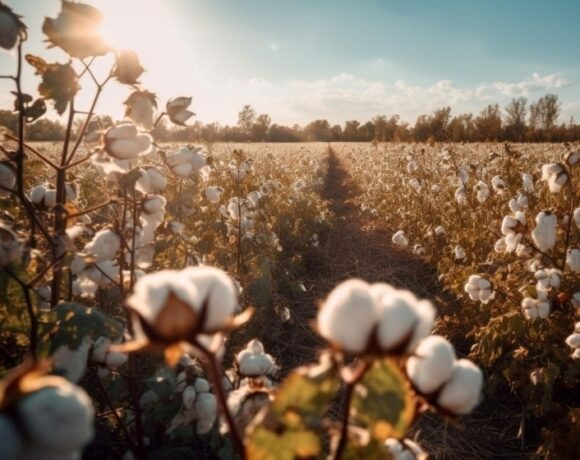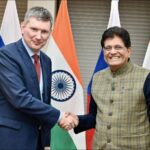WTO & FIFA Call For Strengthening African Cotton Value Chain

WTO Director-General Ngozi Okonjo-Iweala and FIFA President Gianni Infantino unveiled the ‘Partenariat pour le Coton’, a new brand aimed at strengthening the WTO-FIFA cotton partnership and supporting African countries’ participation in cotton value chains.
They also called on the public and private sectors to increase investment in African cotton. The event was inaugurated by the United Arab Emirates’ Minister of State for Foreign Trade, Dr Thani bin Ahmed Al Zeyoudi.
This was done at a high-level event on February 24 marking the start of the 13th Ministerial Conference (MC13) in Abu Dhabi.
Minister Al Zeyoudi, Chair of MC13, expressed the hope that the WTO-FIFA partnership on cotton would send a strong message to the world about the importance of collaboration at MC13 to tackle pressing issues.
“Football is a common language that helps foster connection and collaboration. As we gather here today, let’s reaffirm our commitments to these principles of partnerships. And let us harness the transformative power of trade for a brighter future for all,” he said.
In her opening remarks, Director-General Okonjo-Iweala stressed that cotton goes to the heart of how trade is fundamentally about people.
“Despite cotton’s vital importance to the livelihoods of people in African cotton-producing countries, much remains to be done to unleash the sector’s potential to drive growth, development and job creation. More value must be added to cotton produced in West Africa,” she said.
The DG pointed out the lack of cotton processing activity within the region, with data showing exports of cotton yarn and t-shirts worth barely over US $100,000 compared to around $800 million for exports of cotton lint in an average year.
The lack of these countries’ participation in global textile value chains has resulted in fewer job opportunities for young people, she added.
The WTO has accelerated work on helping to obstacles, notably through the landmark initiative with FIFA launched in 2022.
This initiative is a pivotal step in enabling cotton producers and manufacturers to tap into new markets, including in the sports apparel and garment industry.
The initiative has successfully garnered the support of new partners since its inception, including the United Nations Industrial Development Organization, the International Trade Centre, the African Export-Import Bank, the International Cotton Advisory Committee, and Better Cotton.
Currently, partners are conducting an assessment in C-4 countries and Côte d’Ivoire, with the aim of better understanding the development needs of the cotton sector.
This event aims to showcase the steps we have been taking on the ground, and more importantly, inviting more companies and development partners to explore the potential of the region.
The Director-General said the new brand — “Partenariat pour le Coton” — marks a new stage in partners’ efforts to boost the cotton sector.
“It is our hope that this brand and logo will encourage others to join this partnership and start ramping up investment and value addition in the C-4, along with increased exports,” she stated.
Okonjo-Iweala further said that supporting cotton transformation in West Africa goes beyond improving trade performance.
“It is most of all about improving economic opportunities and the lives of women and young people through promoting sustainable production and processing,” she stated.
“Critically, it would help stimulate a pan-African supply chain in cotton-related goods and services. More economic opportunities for young people will mean fewer lives risked through irregular migration,” she stated.
FIFA President Infantino highlighted FIFA’s commitment to leveraging the power of football to make a greater impact on people’s lives.
“Together with the WTO and other partners, FIFA wants to do something real, something concrete, something impactful, and something that will have an influence on the life of many people. We want to create jobs,” Infantino also said.
We want to help in the fight against poverty. We want to empower women — especially in these countries — and this is something that we need to pursue and push,” he also added.














